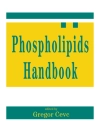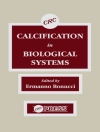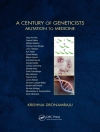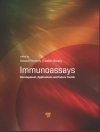Collectively, neurodegenerative diseases are characterized by chronic and progressive loss of neurons in discrete areas of the brain, producing debilitating symptoms such as dementia, loss of memory, loss of sensory or motor capability, decreased overall quality of life eventually leading to premature death. Two types of cell death are known to occur during neurodegeneration: (a) apoptosis and (b) necrosis. The necrosis is characterized by the passive cell swelling, intense mitochondrial damage with rapid loss of ATP, alterations in neural membrane permeability, high calcium influx, and disruption of ion homeostasis. This type of cell death leads to membrane lysis and release of intracellular components that induce inflammatory reactions. Necrotic cell death normally occurs at the core of injury site. In contrast, apoptosis is an active process in which caspases (a group of endoproteases with specificity for aspartate residues in protein) are stimulated. Apoptotic cell death is accompanied by cell shrinkage, dynamic membrane blebbing, chromatin condensation, DNA laddering, loss of phospholipids asymmetry, low ATP levels, and mild calcium overload. This type of cell death normally occurs in penumbral region at the ischemic injury site and in different regions in various neurodegenerative diseases.
Содержание
Neurodegeneration in Neural Trauma, Neurodegenerative Diseases, and Neuropsychiatric Disorders.- Neurochemical Aspects of Ischemic Injury.- Potential Neuroprotective Strategies for Ischemic Injury.- Neurochemical Aspects of Spinal Cord Injury.- Potential Neuroprotective Strategies for Experimental Spinal Cord Injury.- Neurochemical Aspects of Traumatic Brain Injury.- Potential Neuroprotective Strategies for Traumatic Brain Injury.- Neurochemical Aspects of Neurodegenerative Diseases.- Potential Therapeutic Strategies for Neurodegenerative Diseases.- Perspective and Direction for Future Developments on Neurotraumatic and Neurodegenerative Diseases.
Об авторе
Dr. Akhlaq A. Farooqui is a leader in the field of brain phospholipases A2, bioactive ether lipid metabolism, polyunsaturated fatty acid metabolism, glycerophospholipid-, sphingolipid-, and cholesterol-derived lipid mediators, glutamate-induced neurotoxicity and neurological disorders. He has discovered the stimulation of plasmalogen-selective phospholipase A2 (Pls Etn-PLA2) in brains from patients with Alzheimer disease. Stimulation of Pls Etn-PLA2 produces plasmalogen deficiency and increases levels of eicosanoids that may be related to the loss of synapses, induction of neuroinflammation and oxidative stress in brains of patients with Alzheimer disease. Dr. Farooqui has published cutting edge research on the generation and identification of glycerophospholipid-, sphingolipid-, and cholesterol-derived lipid mediators in kainic acid neurotoxicity by lipidomics. He has previously authored five monographs: Glycerophospholipids in Brain: Phospholipase A2 in Neurological Disorders (2007); Neurochemical Aspects of Excitotoxicity (2008); Metabolism and Functions of Bioactive Ether Lipids in Brain (2008); Hot Topics in Neural Membrane Lipidology (2009), and Beneficial Effects of Fish Oil on Human Brain (2009). All monographs are published by Springer. Dr. Farooqui has also edited two books: “Biogenic Amines: Pharmacological, Neurochemical and Molecular Aspects in the CNS” Nova Science Publishers, Hauppauge, N.Y (2010) and Molecular Aspects of Neurodegeneration and Neuroprotection, Bentham Science Publishers Ltd (2010).












